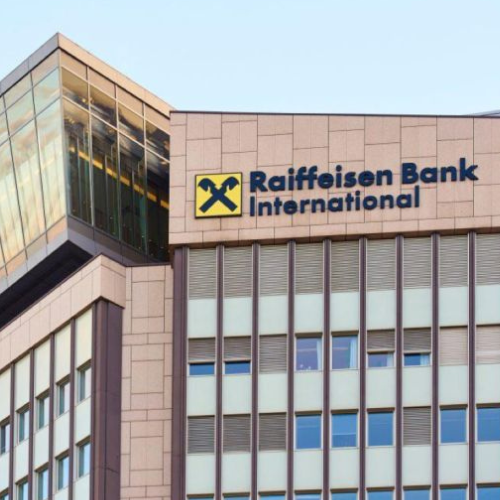Austrian regulators have imposed a record fine on Raiffeisen Bank International (RBI) for significant lapses in its money laundering controls, marking a pivotal moment in the scrutiny faced by one of Austria’s largest financial institutions.
The Financial Market Authority of Austria announced the penalty, amounting to just over 2 million euros ($2.1 million), citing failures in RBI’s oversight of money laundering and terrorism financing checks involving two undisclosed banks. This fine is the largest ever imposed by Austrian regulators, signaling a firm stance on financial institutions’ responsibilities in preventing illicit financial activities.
Regulatory Action and Fine Details
The fine levied against Raiffeisen Bank International reflects a thorough investigation by Austrian regulators, who identified deficiencies in the bank’s procedures related to the prevention of money laundering and the financing of terrorism. The Financial Market Authority’s decision highlights the critical importance of robust compliance measures in maintaining the integrity of the financial system. By penalizing RBI for these lapses, regulators aim to enforce stringent standards that protect against financial crimes and uphold trust in Austria’s banking sector.
Challenges to Compliance Allegations
Raiffeisen Bank International has strongly rebutted the allegations, emphasizing its commitment to maintaining robust anti-money laundering controls. A spokesperson for Raiffeisen Bank International stated, “The allegations… are unfounded,” highlighting the bank’s confidence in its compliance protocols. RBI plans to challenge the penalty in court, seeking to overturn the regulatory decision and mitigate the potential financial and reputational repercussions.
RBI to Buy Deripaska’s Stake in Strabag for $1.5 Billion
International Scrutiny and U.S. Regulatory Pressure
This regulatory action comes amidst heightened international scrutiny of Raiffeisen Bank International’s business practices, particularly in the United States. U.S. authorities have been scrutinizing Raiffeisen Bank International’s operations in Russia, where the bank has maintained significant business ties despite escalating geopolitical tensions. Reports indicate that the U.S. Treasury has warned RBI about potential restrictions on its access to the American financial system due to its continued dealings in Russia. This warning highlights broader concerns about financial institutions maintaining relationships with entities in Russia following its military interventions in Ukraine.
Slow Progress on Commitments and Operational Challenges
Despite its intentions to divest its Russian operations, Raiffeisen Bank International has faced challenges in implementing this strategic shift. The bank’s Russian operations play a crucial role in facilitating payments for numerous companies within the country, complicating efforts to disengage from the market swiftly. The slow progress in divestment raises questions about RBI’s adherence to international sanctions and regulatory expectations, highlighting ongoing operational and compliance challenges for the institution.
Broader Implications and European Financial Landscape
The regulatory scrutiny of Raiffeisen Bank International reflects broader challenges faced by European financial institutions operating in politically sensitive regions. While many Western governments and corporations have reduced their engagements with Russia following its invasion of Ukraine, Austria’s economic ties, including critical gas pipelines and financial transactions, continue to link the country closely with Russia and its neighboring states. The case of RBI illustrates the complexities involved in balancing economic interests with regulatory compliance and international political pressures.
The record fine imposed on Raiffeisen Bank International by Austrian regulators for money laundering lapses highlights the critical importance of robust compliance measures in safeguarding financial integrity.
As regulatory expectations evolve globally, financial institutions must prioritize stringent adherence to anti-money laundering and counter-terrorism financing standards to mitigate risks and maintain trust in the financial system. RBI’s decision to challenge the penalty in court will be closely watched as it seeks to defend its operational practices amidst regulatory pressures and navigate the complexities of international banking regulations.
The regulatory action against Raiffeisen Bank International serves as a reminder for financial institutions to enhance their due diligence and compliance frameworks.
By enforcing penalties for lapses in anti-money laundering controls, regulators aim to reinforce the integrity of the financial system and protect against illicit financial activities. As RBI addresses these challenges, its actions will shape perceptions of Austrian financial oversight and compliance standards within the international banking community.


